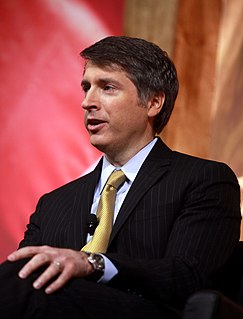A Quote by Vladimir Putin
Concerning our possibilities on the international financial markets, the sanctions are severely harming Russia. But the biggest harm is currently caused by the decline of the prices for energy. We suffer dangerous revenue losses in our export of oil and gas, which we can partly compensate for elsewhere. But the whole thing also has a positive side: if you earn so many petrodollars - as we once did - that you can buy anything abroad, this slows down developments in your own country.
Quote Topics
Abroad
Also
Anything
Biggest
Buy
Caused
Compensate
Concerning
Country
Currently
Dangerous
Decline
Did
Down
Earn
Elsewhere
Energy
Export
Financial
Financial Markets
Gas
Harm
Harming
International
Losses
Many
Markets
Oil
Oil And Gas
Once
Our
Own
Partly
Positive
Possibilities
Prices
Revenue
Russia
Sanctions
Side
Suffer
Thing
Which
Whole
Your
Related Quotes
Then there is another area of activity - economic interaction between Russia and the United States. Right now, for example, it has already been made public that we signed a large deal to privatise one of our biggest oil and gas companies, Rosneft. We know for sure that US companies, as well as Japanese ones, by the way, are keenly interested in cooperation in Russia's oil and gas sector, in joint work. This has immense significance for world energy markets and will directly affect the whole world economy.
Exporting oil would not drive up prices at the pump. American drivers buy refined products, which the U.S. already exports. Many studies - from a range of institutions and government agencies, including the Congressional Budget Office and the Energy Information Administration - have shown that lifting the export ban could actually lower gas prices.
Russia does not have a modern economy: it's a petro-power. The only thing it sells that the world wants to buy is oil and natural gas. When was the last time anyone bought a Russian computer? A Russian car? A Russian cell phone? Russia is so dependent on high energy prices that if oil falls below $100 a barrel, the Kremlin can't meet payroll.
They [leaders in Western Europe] do not misuse financial instruments, financial injections, but, first of all, seek structural change. This is urgent for our economy as well, maybe even more urgent bearing in mind the problem that we cannot yet deal with, namely the prevalence of the oil and gas sector in the Russian Federation and, as a result, dependence on revenue from oil and gas.
It's important to Russia to be able to attract capital and to attract technology to develop their oil fields, their oil and gas fields, many of which suffer from lack of access to the very best technologies. And it's also important, and this has been the US government's view to have diversification of supply, diversification of supply roots and, of course, diversification in terms of alternative energy.
Venezuela has the biggest oil reserves in the world. And the biggest gas reserves in this hemisphere, the eighth in the world. Venezuela was a U.S. oil colony. All of our oil was going up to the north, and the gas was being used by the U.S. and not by us. Now we are diversifying. Our oil is helping the poor.
The horn of dilemma of energy politics is what really drives concern about this energy in this country, at the gut level for most people, is high gas prices. And if you really want to fight global warming and try to reduce our carbon emissions, the cleanest, easiest, most rational way to do it would to make the price of gas even higher through very stiff gas prices.
In the near term, oil is galloping ahead and leading our economy. We have to corral the "horse" and gradually reduce our dependence on oil and coal, in their present forms. Green-energy investment is inherently high-tech, and we could lead in the next-generation energy technologies, as we did and do now with oil and gas. All it takes is leadership!
In the near future, despite the development of alternative energy, when you look at the economics and environmental standards, then there's no other source of primary energy in the world than natural gas. Well, perhaps there is nuclear energy but there are also a lot of issues there and there are opponents of nuclear energy. Gas doesn't have those opponents. But there is a country that is, obviously, the world leader in gas reserves. That's our country, the Russian Federation.
Our country has suffered from an on-again, off-again energy policy that has failed to get us to energy independence. As President Obama has said, we need a comprehensive energy plan for the country that includes conventional resources like oil and gas, but that also takes advantage of wind, solar, biomass, geothermal, and other renewable resources.



























